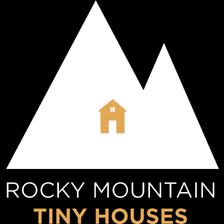This page exists to let you know exactly how we bill for each build and what you can expect when signing a contract.
Contract Type
The contract will either be 1. Time and Material Basis (T&M) 2. Fixed price
90% of the time customers can expect to sign on a Time and Material Basis. The 10% exceptions are for customers wishing to purchase a spec model build that we have previously built, hence the costs are well known and even if you want small modifications to the spec design we can factor this into a set price. Otherwise, we absolutely will not do a Fixed Price contract. We’ve done it before and usually end up losing money due to unforeseen circumstances that are likely to happen when you are trying out new designs. So, since a fixed price contract is probably not something you will be signing, lets look at the T&M.
Time and Materials
This is not only most fair to both parties, but we’ve come up with a system that makes the process very clear and easy to understand. There are costs, some fixed, some variable, associated with building your tiny house. They are defined as clearly as possible up front:
Materials
Material costs are passed down to you with zero markup. Sometimes there are freight charges and other times there is small interest added if the materials were purchased through a local supplier using a line of credit.
There will be a line item at the bottom of the expense tally for consumables. These are items such as shop rags, sandpaper, saw blades, wood glue, paint brushes/rollers, masking tape, or other misc shop supplies that get consumed during the build process. This will amount to 1.5% of all other material costs. So if final material costs came out to $30,000, the consumable charge would be for $450.
Materials are obviously a variable cost and dependent upon what you pick out, and also commodity prices at the time of your build.
Overhead
We have been in business long enough now to figure out what it actually cost to keep the business running. These costs do fluctuate from time to time, so we don’t have them listed here, but they will be clearly defined on your contract.
They include shop rent, utilities, office supplies, shop supplies, worker’s comp, insurance, fuel, accounting, and more. These add up to a monthly total, which we then convert to a weekly total. Your project will be billed in weekly increments based on how long it takes to complete the build assuming a full time workforce. There are rare instances in which construction is held up when there are material delivery delays, or weather delays. If your build sits a week without any work being done, we do not bill overhead for that week.
Labor
There are usually four employees per house crew: Shop Supervisor, lead carpenter, secondary carpenter, and helper. They each have different rates based on skill level that are spelled out in the contract. Sometimes we subcontract portions of the work we cannot do ourselves, or that is required for certifications. These costs are passed through with zero markup. This is a variable cost directly proportionate to the complexity of the design.
Company Profit
Businesses cannot keep the doors open without turning a profit, and so we charge a modest fee that can not only sustain the business but set aside funds for capital improvements such as vehicles, tools, shelter, material storage, etc. The fixed fee is based on the size and complexity of your tiny house. It normally ranges anywhere from $3-10k, broken down by house size as follows:
Total Trailer Length Builder Fee
12’/14′ $3,000
16′ $3,500
18′ $4,000
20′ $5,000
22′ $5,800
24′ $6,700
26′ $7,500
28′ $8,000
30′ $8,300
32′ $8,500
34′ $8,700
36′ $9,000
38′ $9,300
40′ $9,600
43′ $10,000
This fee schedule is based on turn key finish out. For shell or partial builds, we calculate a % complete compared to a turn key and pro rate the price based on this. For instance, a 50% complete 24′ shell would have a builder fee of $3,250.
Also, these prices are for standard 8′ wide builds. If wanting a 10′ wide build, please add 5%. For example, a 10×32 would incur an additional $415 vs a 8×32.
For gooseneck builds that have a 7′ neck resulting in a odd trailer length ( i.e. 24+7 =31′) you would round up the nearest length, so this would be considered a 32′ trailer.
